The Smallville Chronicles
Critical Essays on the Television Series
Edited by Lincoln Geraghty
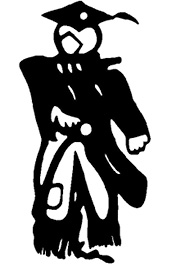
The Scarecrow Press, Inc.
Lanham Toronto Plymouth, UK
2011
Published by Scarecrow Press, Inc.
A wholly owned subsidiary of The Rowman & Littlefield Publishing Group, Inc.
4501 Forbes Boulevard, Suite 200, Lanham, Maryland 20706
http://www.scarecrowpress.com
Estover Road, Plymouth PL6 7PY, United Kingdom
Copyright 2011 by Lincoln Geraghty
All rights reserved. No part of this book may be reproduced in any form or by any electronic or mechanical means, including information storage and retrieval systems, without written permission from the publisher, except by a reviewer who may quote passages in a review.
British Library Cataloguing in Publication Information Available
Library of Congress Cataloging-in-Publication Data
The Smallville chronicles : critical essays on the television series / edited by Lincoln Geraghty.
p. cm.
Includes bibliographical references and index.
ISBN 978-0-8108-8130-3 (cloth : alk. paper) ISBN 978-0-8108-8131-0 (ebook)
1. Smallville (Television program). I. Geraghty, Lincoln, 1977.
PN1992.77.S626S43 2011
791.45dc22 2011017638
 The paper used in this publication meets the minimum requirements of AmericanNational Standard for Information SciencesPermanence of Paper for Printed LibraryMaterials, ANSI/NISO Z39.48-1992.
The paper used in this publication meets the minimum requirements of AmericanNational Standard for Information SciencesPermanence of Paper for Printed LibraryMaterials, ANSI/NISO Z39.48-1992.
Printed in the United States of America
Acknowledgments
I would like to thank my editor, Stephen Ryan, for his immense patience while I completed this project. It seemed putting this volume together was a task fit only for Superman, but thanks to Stephen and all the contributors it finally came off. I had valuable assistance from staff at the Kobal Collection in locating and purchasing images for this book; to them I offer my gratitude. Funding for those images came from the Centre for Cultural and Creative Research at the University of Portsmouth, so my thanks must also go to the committee for awarding me the money. I must also thank my colleague Van Norris in the School of Creative Arts, Film and Media at Portsmouth who devoted his time and energy to taking pictures planned for the front cover of the book (some of which are included inside). His enthusiasm for composing shots and playing with Superman props knows no bounds! Finally, to my partner Rebecca, thank you for buying me all those Smallville DVD box sets for Christmas and birthdaysyou helped make the research fun!
Introduction
Investigating Smallville
Lincoln Geraghty
Smallville s first of ten seasons aired on the WB (Warner Bros.) Network in October 2001. Subtitled Superman the Early Years in UK promotional material for Channel 4, the series took the traditional Superman story and turned it into an American teen action drama about Clark Kents life at high school before he donned the famous blue tights and red cape. Instead of seeing Superman take on supercriminals in Metropolis, the audience got to see how he first developed his powers and learned to cope with girls, school, and teenage angst. Without his fancy costume, Smallville showed Superman as a vulnerable and innocent teenager. The series was just as much a teen melodrama as a science fiction or fantasy action serial. Although largely overlooked by criticsmany Superman fans saw it as too far a departure from the comic book canonits similarities to previous teen television like Dawsons Creek (19982003) endeared the Superman story to a whole new generation of viewers. The setting, style, narrative, and cast of fresh-faced actors suggested that the Superman story was not only ready for a televisual makeover but also still relevant for a post-9/11 American audience. In a sense, the regression back from the big city (Metropolis) to small-town life (Smallville) attests to the major impact 9/11 had on the American psyche.
The reinvention of Americas most famous superhero was a cathartic act, representative of televisions return to innocence in times of political and social uncertainty. Placing the series in the wider of contexts of Americas postmillennial malaise and the changing television industry, this collection investigates the multiple narratives of the Smallville universe. Issues relating to gender, sexuality, identity, myth, history, and politics are explored in connection with how the series uses the Superman story and the concept of genre television to comment on contemporary social issues. As a teen television series, Smallville also boasts a large cult fan following whose knowledge of and devotion to the series is exemplified by fans use of new media technologies. Chapters in this volume not only analyze the TV text and its televisual and cultural contexts but also investigate the complex relationship its audience has with the characters and narrative through blogging, fan fiction, traveling to filming locations, and creating websites.
Superman: From Comic Book to American Icon
In a book about Smallville , one cannot ignore the great weight of history represented in the Superman mythos. Despite its contemporary nature as teen melodrama, Smallville is a story about Superman, his upbringing, and how he became the superhero we know today. Thus, all that Superman embodies reflects upon and brings meaning to the character of Clark Kent in Smallville . As a teen superhero, Clark grapples with the very same problems and internal angst that troubled the original Clark Kent in the comic books, early radio plays, television series, and film adaptations. Because he is a superhero from Krypton living in disguise as a human reporter from Smallville, Superman personifies the moral and ideological tensions at the heart of Americahe represents all that America strives to be and all that America knows it is not. While I do not wish to cover the enormous history of the Superman mythos in this introduction, it is important to recognize the significance of myth and the superhero in American culture and locate the figure of Superman within it. For John Shelton Lawrence and Robert Jewett, the popularity of television series like Smallville , film series like Star Wars , and comic book superheroes indicates that Americans have not moved beyond mythical consciousness. Indeed, the myth of the superhero is rooted in what they call the American Monomyth, described as a tale of redemption. The classical monomyth concerned the rite of passage and initiation of a lone hero who undertook great voyages and adventures, for example, the Greek heroes Hercules and Odysseus. The American version combines the lone hero motif with an inherent urge to do good and be redeemed, to bring about the salvation of those less fortunate; the most obvious example of this would be the messianic figure of Jesus Christ. Both the initiation myth and the salvation myth form the unique American Monomyth, and at the heart of them both is the underlying sense of freedom. In the case of Hercules and Odysseus, freedom was personified by the pursuit to attain manhood through heroic acts of adventure; freedom for Jesus meant freedom from sin for those he had sacrificed his life to save; and for Superman freedom was represented in notions of democracy and protecting the American way of life. Jewett and Lawrence stress that the American Monomyth secularizes the Judeo-Christian redemption dramas that have arisen on American soil. Therefore, the superhero is both a messianic figure and an icon of American idealism.
As in all superhero narratives where the superhero and supervillain exist to do battle, this idealism is constantly under threat from outside forces. America perceives itself to be the moral and political authority in the world, and thus Superman is a protector and policemansaving people from those who do harm but also protecting America from criminals and alien forces that would seek to tear down what America stands for. At the height of Supermans popularity in the comics, he stood as an example to readers that America was good and worthy of being protected: The superhero by his very existence asserts American utopianism... a highly potent cultural myth. As a role model, Superman represented the qualities of individualism and the collective identity of WASP America, and through individual effort the collective enterprise that is America could be realized. More than that, Superman was an ideal in himself. The audience projected their real identity onto Superman and thus embodied the ideological message that to be a good American one had to strive to follow the American Monomyth: save yourself to save the country. Historically, Danny Fingeroth sees the superhero myth as more than a function of happenstance. For him, The creation of a legion of special beings, self-appointed to protect the weak, innocent, and victimized at a time when fascism was dominating Europe stems from creators Jerry Siegel and Joe Shuster who envisioned Superman as a godlike man who would heed the call of those who suffered persecution. Sure enough, superheroes can be many things to many people, and that is why Superman has managed to survive for over seventy years in the cultural memory of his fans. Smallville simply takes the myth and the man and recycles him for a new generation:

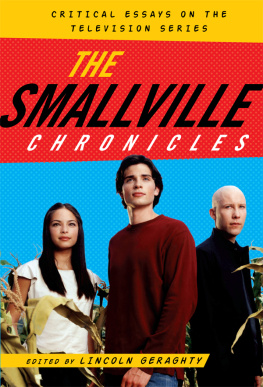
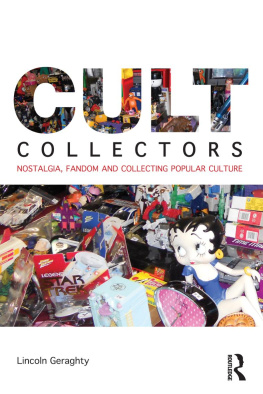

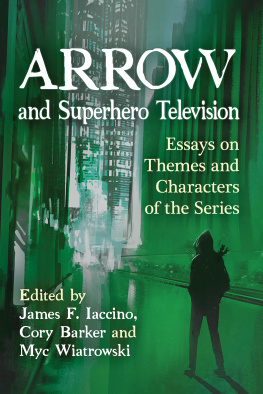
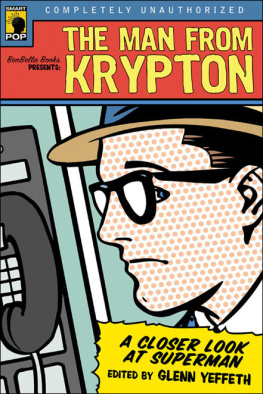

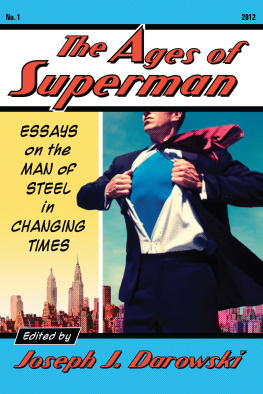

 The paper used in this publication meets the minimum requirements of AmericanNational Standard for Information SciencesPermanence of Paper for Printed LibraryMaterials, ANSI/NISO Z39.48-1992.
The paper used in this publication meets the minimum requirements of AmericanNational Standard for Information SciencesPermanence of Paper for Printed LibraryMaterials, ANSI/NISO Z39.48-1992.